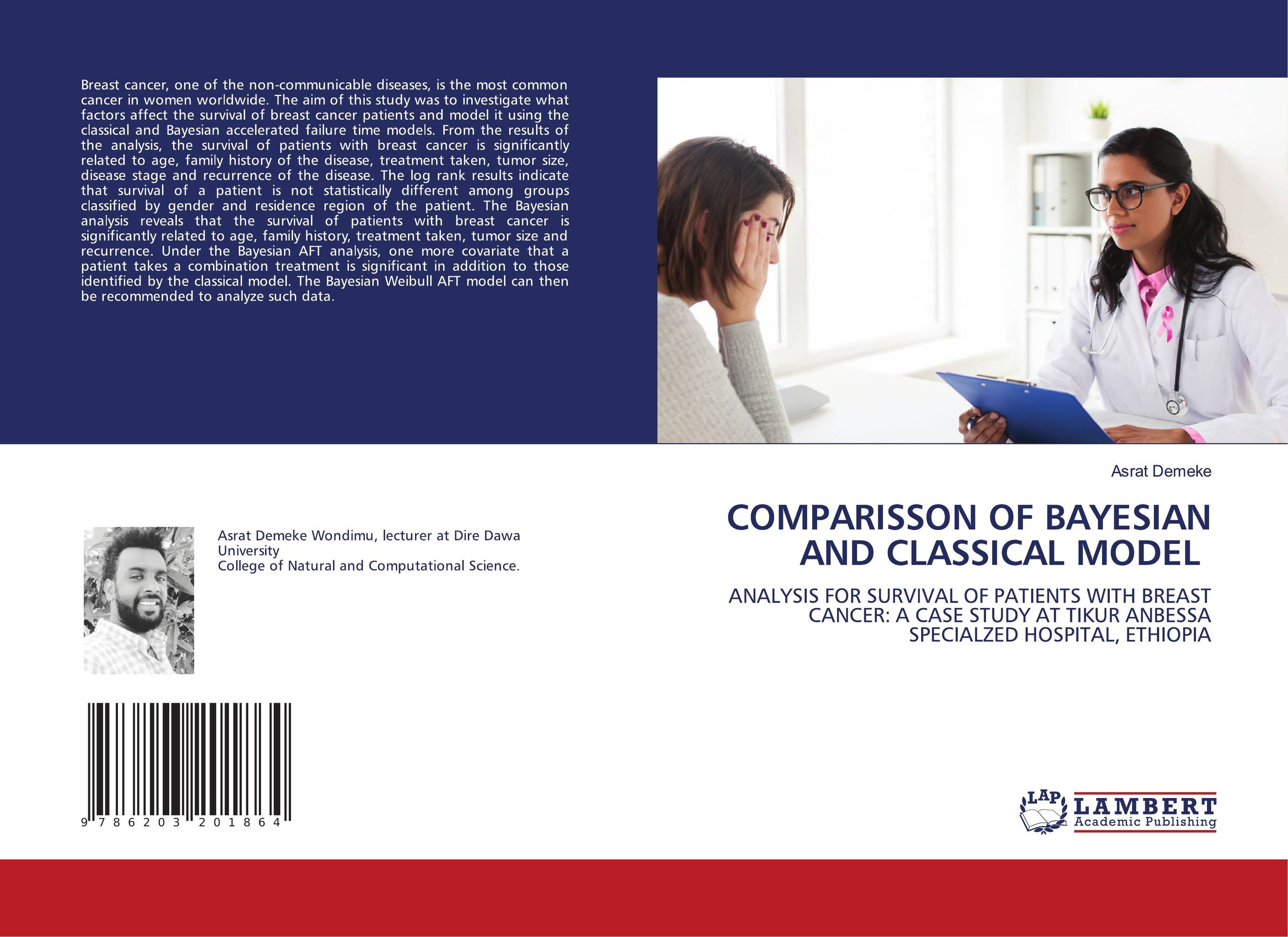| Поиск по каталогу |
|
(строгое соответствие)
|
- Профессиональная
- Научно-популярная
- Художественная
- Публицистика
- Детская
- Искусство
- Хобби, семья, дом
- Спорт
- Путеводители
- Блокноты, тетради, открытки
COMPARISSON OF BAYESIAN AND CLASSICAL MODEL. ANALYSIS FOR SURVIVAL OF PATIENTS WITH BREAST CANCER: A CASE STUDY AT TIKUR ANBESSA SPECIALZED HOSPITAL, ETHIOPIA

В наличии
| Местонахождение: Алматы | Состояние экземпляра: новый |

Бумажная
версия
версия
Автор: Asrat Demeke
ISBN: 9786203201864
Год издания: 1905
Формат книги: 60×90/16 (145×215 мм)
Количество страниц: 104
Издательство: LAP LAMBERT Academic Publishing
Цена: 32031 тг
Положить в корзину
| Способы доставки в город Алматы * комплектация (срок до отгрузки) не более 2 рабочих дней |
| Самовывоз из города Алматы (пункты самовывоза партнёра CDEK) |
| Курьерская доставка CDEK из города Москва |
| Доставка Почтой России из города Москва |
Аннотация: Breast cancer, one of the non-communicable diseases, is the most common cancer in women worldwide. The aim of this study was to investigate what factors affect the survival of breast cancer patients and model it using the classical and Bayesian accelerated failure time models. From the results of the analysis, the survival of patients with breast cancer is significantly related to age, family history of the disease, treatment taken, tumor size, disease stage and recurrence of the disease. The log rank results indicate that survival of a patient is not statistically different among groups classified by gender and residence region of the patient. The Bayesian analysis reveals that the survival of patients with breast cancer is significantly related to age, family history, treatment taken, tumor size and recurrence. Under the Bayesian AFT analysis, one more covariate that a patient takes a combination treatment is significant in addition to those identified by the classical model. The Bayesian Weibull AFT model can then be recommended to analyze such data.
Ключевые слова: Bayesian analysis, breast cancer, Gibbs Sampler, survival analysis



